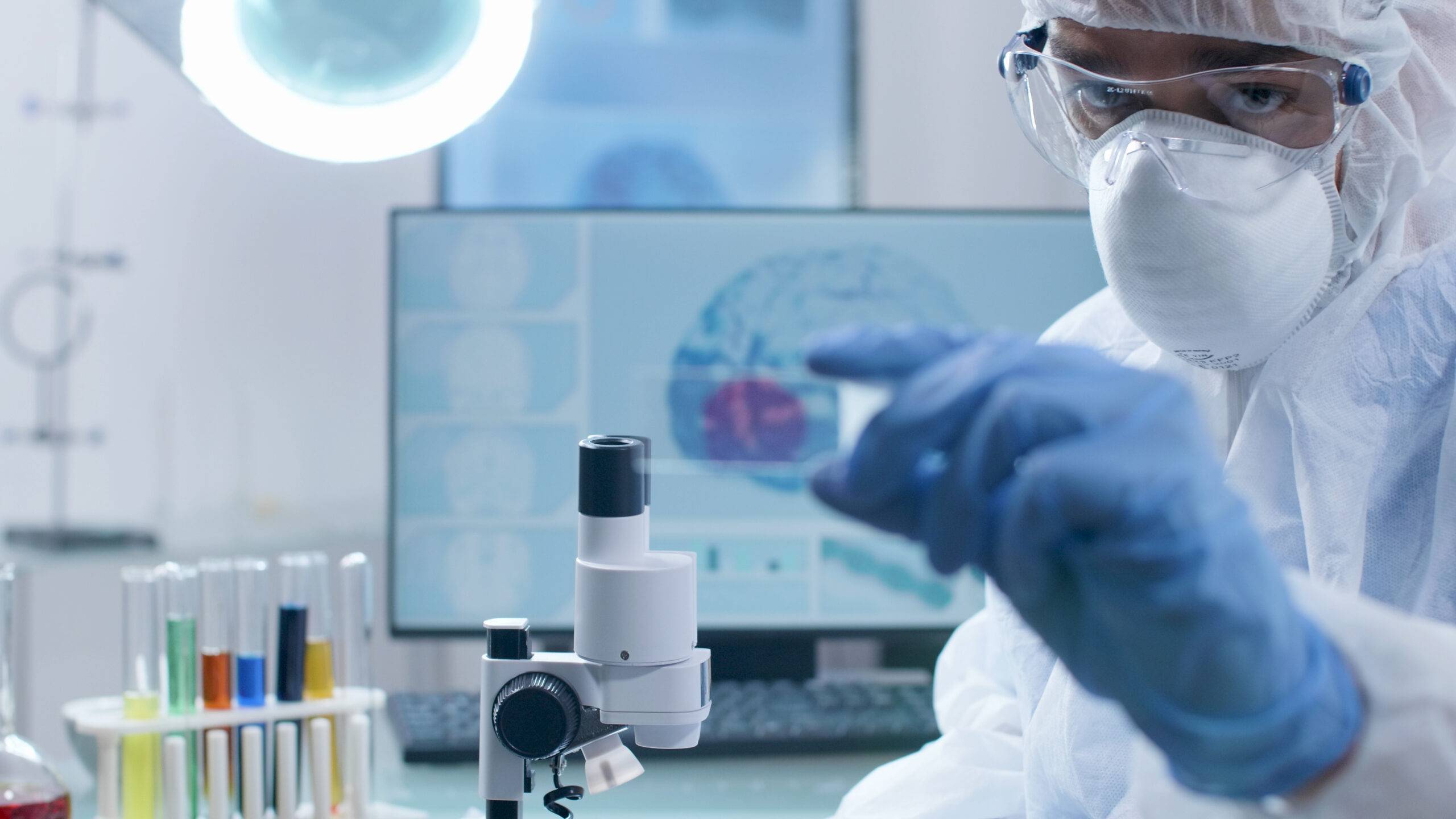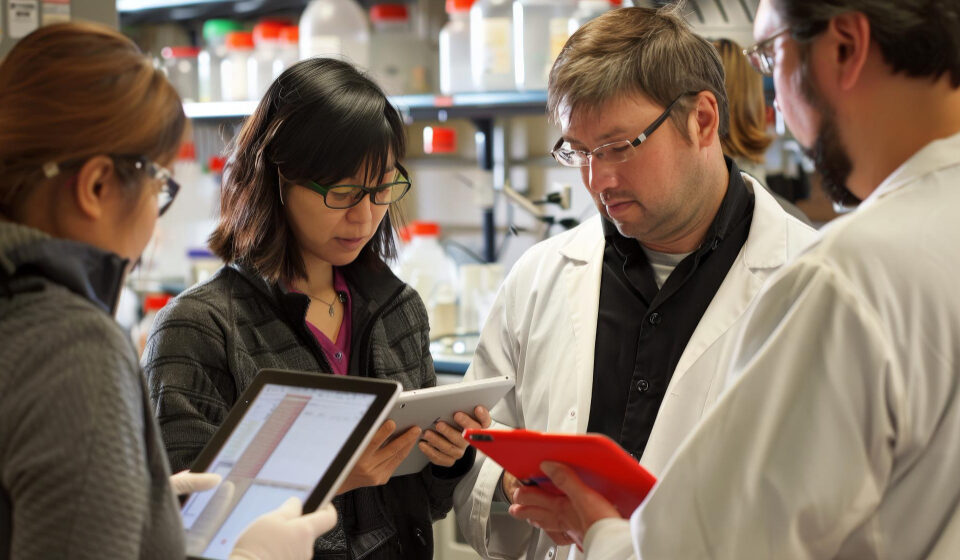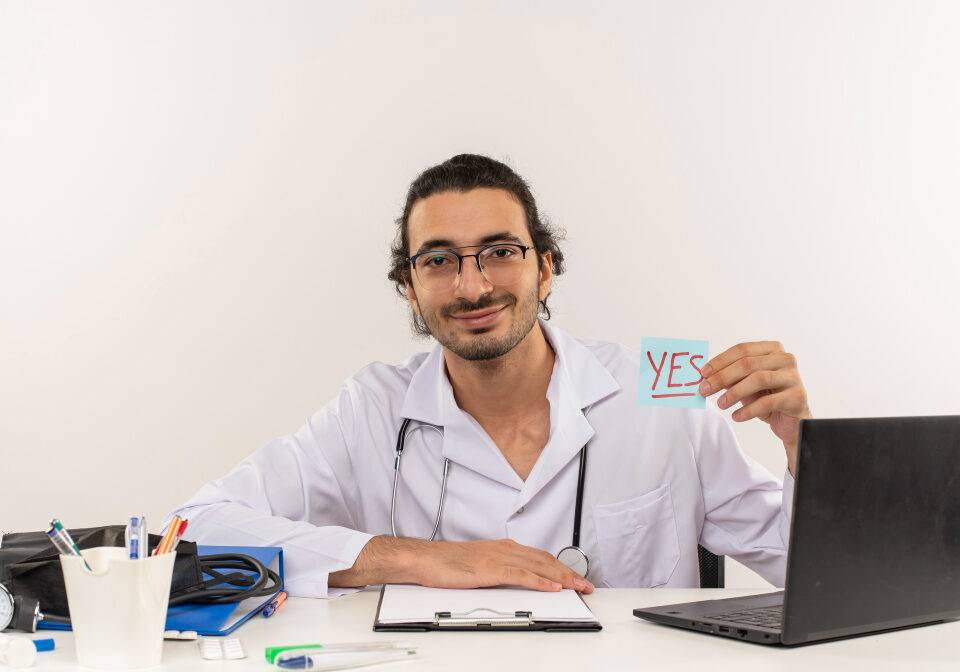
Specialist researcher holding microscope slide analyzing blood sample working at coronavirus vaccine development during virus examination in microbiology hospital laboratory. Biochemistry experiment
Medical professionals are essential to drug testing, helping from the very beginning to the point of approval. Their participation guarantees clinical trials‘ efficacy, safety, and moral conduct.
The following are some significant ways that medical professionals are essential to drug testing:
Designing clinical trials and developing protocols:
- The clinical trial structure is designed with input from medical researchers and physicians, who also set important factors like dose, treatment plans, and participant inclusion and exclusion standards.
- They guarantee participant welfare and data integrity by ensuring the study methods comply with legal and ethical requirements.
Participant sourcing and screening:
- Based on the trial’s inclusion criteria, doctors and nurses find qualified volunteers.
- They gather comprehensive medical histories and perform preliminary health screens to make sure participants are qualified and to set baseline health indicators.
Process for Verified Acceptance:
- Medical staff must inform new participants about the trial’s goals, protocols, dangers, and rewards.
- They secure informed permission, guaranteeing that subjects are aware of the experiment and willingly choose to take part.
Delivering experimental medical care:
- Clinicians follow the trial procedure when administering investigational medications.
- They keep a careful eye on participants’ side effects and therapeutic results, guaranteeing precise and reliable treatment delivery.
Surveillance and information gathering:
- Medical staff monitors and documents participant health, treatment responses, and adverse effects during the experiment.
- They collect extensive data by doing routine lab testing, physical examinations, and other evaluations.
Controlling contrary occurrences:
- When negative occurrences or side effects arise throughout the trial, medical staff is prepared to recognize them, record them, and handle them.
- They decide if a participant should continue in the trial and administer any necessary medical treatment.
Guaranteeing adherence and transparency:
- Medical professionals ensure that the protocol is authorized and that regulations are followed when conducting the trial.
- For regulatory assessment and clearance, they uphold complete and correct documentation.
Interpretation and Analysis of Data:
- To ascertain the medication’s safety and effectiveness, researchers and clinicians examine the data gathered.
- Their knowledge is essential for deciphering the data and appreciating the findings’ therapeutic importance.
Participant involvement and responsible surveillance:
- Clinical trial oversight is carried out by ethics committees composed of medical professionals.
- They support the rights and welfare of participants, making sure that clinical trials are carried out morally and that subjects receive considerate treatment.
Regulatory Filings and Follow-Up After Trial:
- Medical researchers gather data from the trial and provide comprehensive reports to regulatory agencies.
- Additionally, they might conduct post-trial follow-ups to keep an eye on the medication’s long-term effects and provide participants with ongoing care if needed.
In conclusion, medical professionals play a critical role in the effective conduct of pharmacological studies. Their knowledge and moral dedication guarantee that novel medications are thoroughly examined, with participant safety and scientific integrity given priority.



